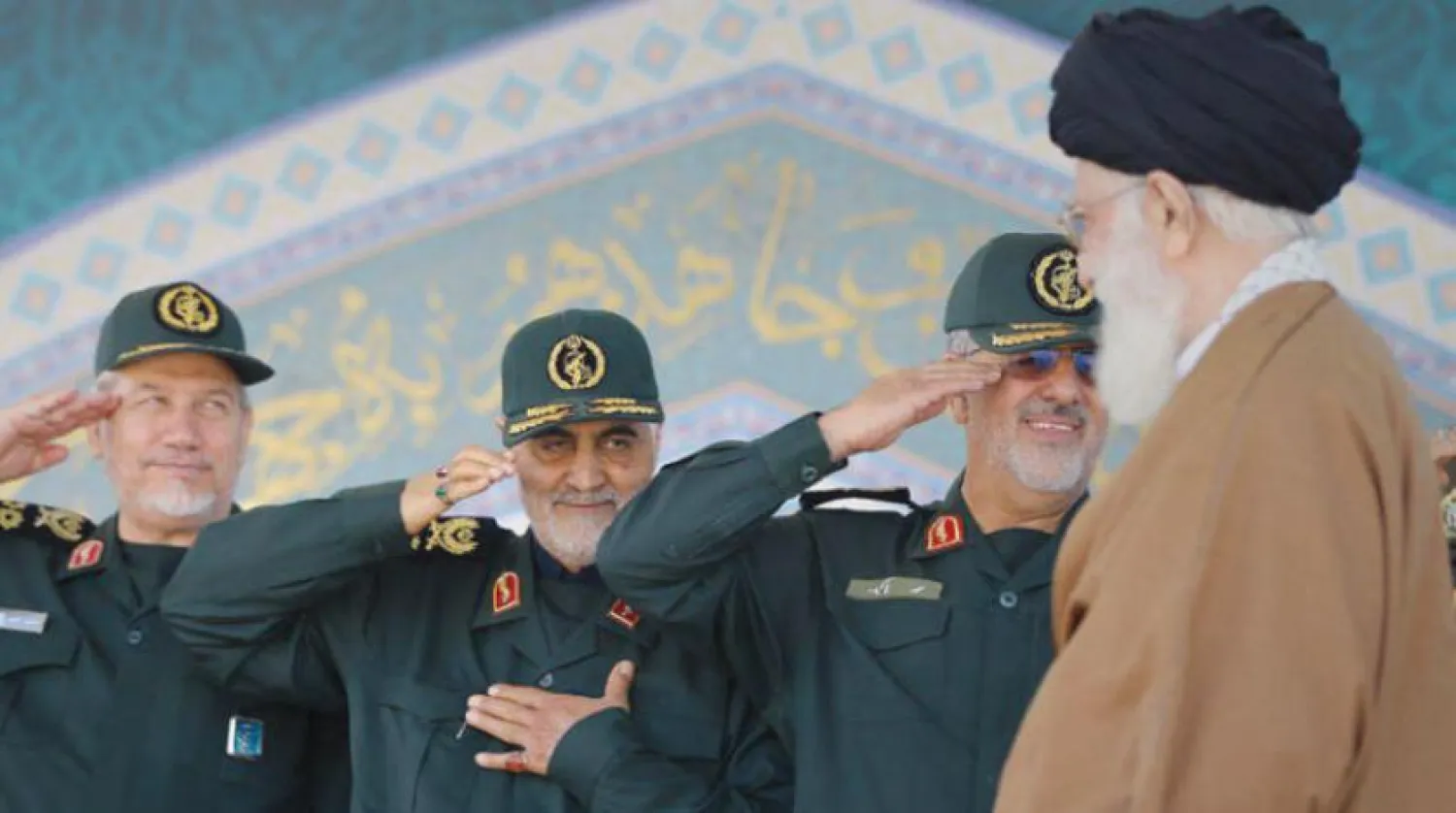Major General Yahya Rahim Safavi, a top military adviser to the Iranian Supreme Leader Ali Khamenei, said that late Quds Force commander Qassem Soleimani had succeeded in establishing 82 fighting brigades in each of Syria and Iraq.
The taskforces, according to Safavi, include fighters from multiple nationalities.
Making his remarks at a press conference on the one-year anniversary since Soleimani’s killing in a US drone strike near Baghdad, Safavi confirmed that 60 brigades that are 70,000 fighters strong were established in Syria.
Multinational militias fighting under the banner of the Quds Force, Iran’s arm for foreign operations, are believed to make up the backbone of Soleimani’s brigades.
During the course of its involvement in Syria, Iran has managed to establish the Liwa Fatemiyoun (Fatimid Banner), comprised of Shiites from Afghanistan, Liwa Zainebiyoun (Zainab Brigade), comprised of Shiites from Pakistan, and Liwa Heydariyoun, comprised of Shiites from Iraq.
Safavi described his country's move to establish dozens of armed militias across the region as “converting the threat into an opportunity, under the strategic management of the Soleimani school.”
He noted that the presence of these militias alongside conventional armies in Iraq and Syria presented a “difficult challenge, but Soleimani showed flexibility in that area.”
In his address, the senior adviser recounted Soleimani’s role in Iraq, Syria, Yemen and Lebanon and in fighting the US and its allies in the region.
He also pointed out that Soleimani had conducted “strategic” diplomatic discussions with the heads of states in Russia, Turkey, Iraq and Afghanistan.
Safavi also reaffirmed Iran’s determination to stage operations against US presence in the region, identifying the region extending from the eastern Mediterranean to western Asia and South America as a “resistance front.”
He urged younger generations to adopt Soleimani's school of thought, claiming: “The Soleimani school has caused a political and military defeat for US in the occupation of Iraq and Afghanistan.”









